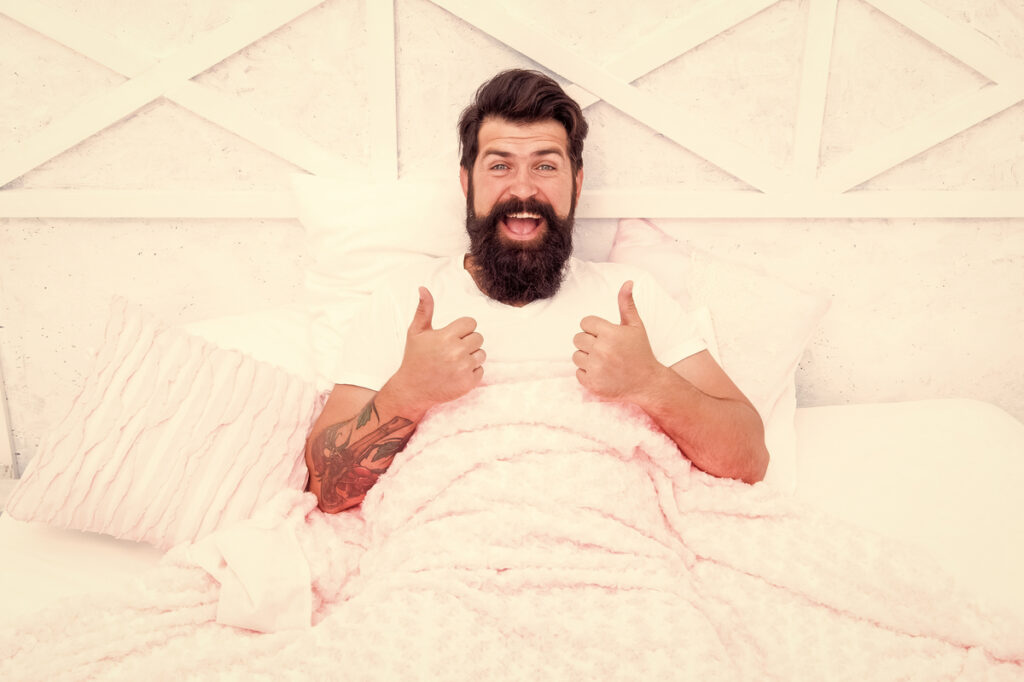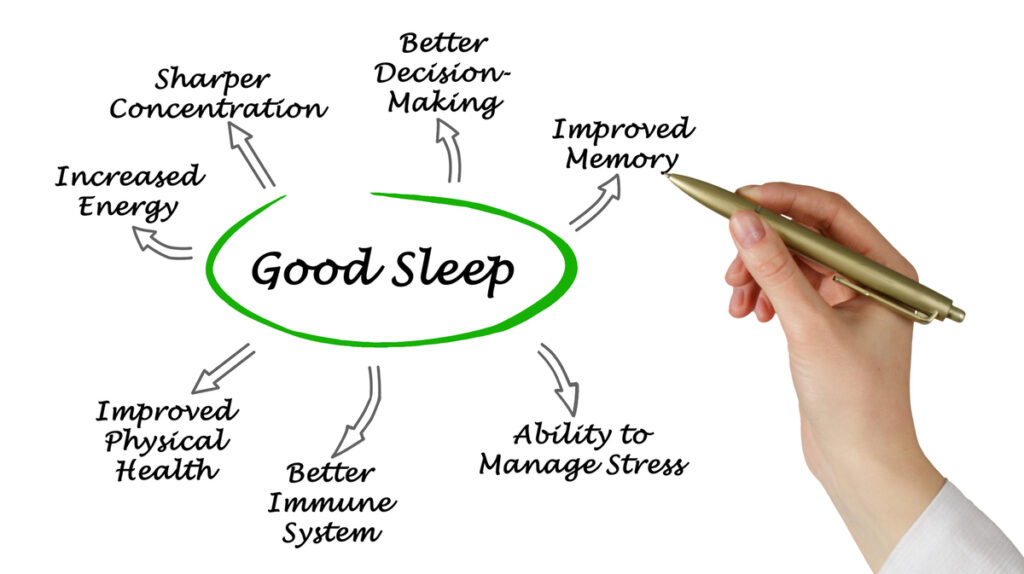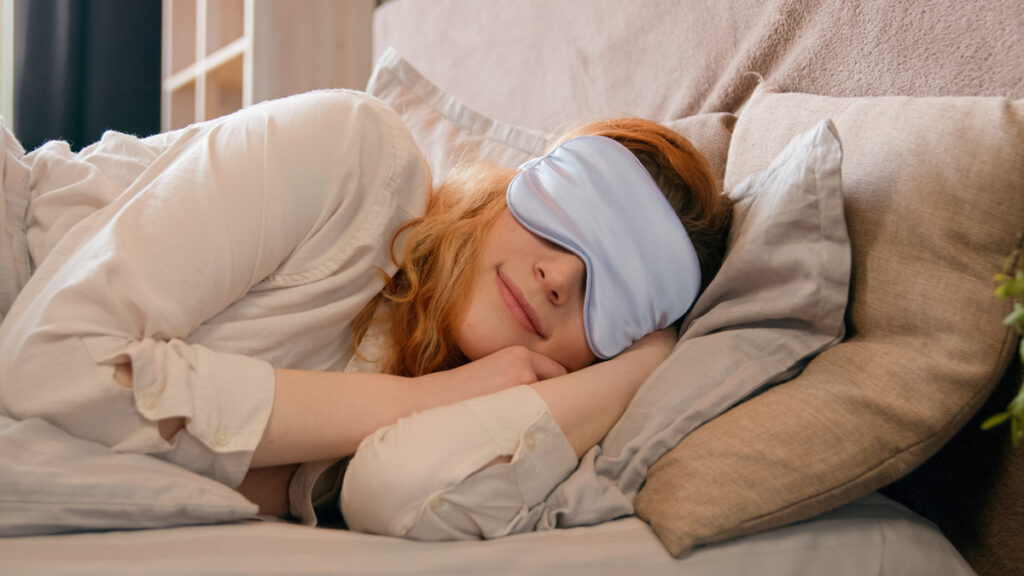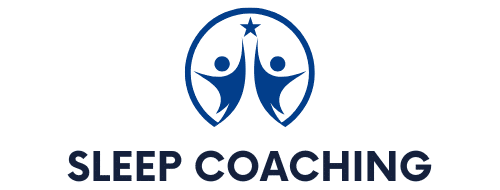Ever wake up feeling groggy, even after what should have been a full night’s sleep? You’re not alone. Poor sleep doesn’t just leave you tired—it can impact your health, mood, and daily performance. But there’s good news: sleep coaching can help.
Sleep coaching focuses on practical, personalized techniques to improve your sleep and overall wellness. By developing a tailored sleep routine, you can finally wake up feeling refreshed and recharged.
In this post, you’ll uncover proven sleep coaching strategies to tackle common sleep challenges like trouble falling asleep or staying asleep. Say goodbye to restless nights and hello to better rest and vitality!

Understanding Sleep Coaching
Sleep coaching is about empowering you to achieve the restful sleep you deserve. It’s not about simply being told to “try harder” to fall asleep—it’s about receiving personalized strategies and support to build a sustainable sleep routine. Think of a sleep coach as your knowledgeable partner in unlocking the secrets to better rest.
A sleep coach examines your current sleep patterns and identifies areas for improvement, tailoring recommendations to fit your unique lifestyle and needs. They help you optimize your sleep environment, address underlying challenges, and create a mindset that promotes relaxation and rest. With their guidance, you’ll gain a deeper understanding of what’s disrupting your sleep and how to overcome it.
In the end, sleep coaching isn’t just about better nights—it’s about giving you the tools to enjoy brighter, more energized days.
What is Sleep Coaching?
Sleep coaching is a personalized approach to improving sleep quality through structured guidance and expert support. Rooted in science, it empowers individuals to take control of their sleep and wake up feeling refreshed. Here’s what the process typically involves:
- Assessment: Your sleep coach evaluates your current habits, sleep environment, and lifestyle factors affecting your rest.
- Goal Setting: Together, you’ll set achievable and personalized goals for your sleep improvement journey.
- Strategies: Learn practical techniques tailored to your needs, such as relaxation exercises, improved sleep hygiene, and establishing a consistent bedtime routine.
- Support: Benefit from ongoing encouragement and adjustments through regular check-ins to keep you motivated and on track.
Sleep coaching isn’t a one-size-fits-all solution. Each plan is carefully customized to address your unique challenges and preferences, ensuring sustainable, long-term results.
The Benefits of Sleep Coaching
Investing in sleep coaching can revolutionize your nights and transform your days. Here are some of the key benefits:

- Improved Sleep Quality: Experience deeper, more restorative sleep that leaves you feeling truly rested.
- Increased Energy: Wake up refreshed and ready to tackle the day with vigor.
- Better Focus: Boost your concentration and productivity with the clarity that comes from quality rest.
- Stress Reduction: Master relaxation techniques that calm your mind and promote a sense of peace.
- Enhanced Health: Quality sleep strengthens your immune system and contributes to overall well-being.
Sleep coaching isn’t just about better nights—it’s a commitment to improving your health, happiness, and quality of life. Why wait? Take the first step toward restful nights and energized days today!
Key Sleep Coaching Techniques
Achieving better sleep often comes down to implementing the right strategies. Sleep coaching offers a variety of techniques designed to help you establish a consistent, restful routine. Let’s explore some of the most effective methods to transform your nights.
Creating a Sleep Schedule
Establishing a consistent sleep schedule can do wonders for your mind and body. By going to bed and waking up at the same time every day, you help regulate your internal clock, making it easier to fall asleep and wake up naturally.
Aim for 7–9 hours of sleep each night, and try to maintain your schedule even on weekends. Over time, this routine trains your body to expect rest at specific hours, improving the overall quality of your sleep. As the saying goes, “Your body thrives on rhythm,” so start creating yours today!
Sleep Environment Optimization
Your sleep environment has a profound impact on the quality of your rest. Creating the right atmosphere can make falling and staying asleep much easier. Here are some key tips to transform your sleeping space into a haven of relaxation:
- Control Light: Use blackout curtains or an eye mask to block outside light, and eliminate indoor light sources like glowing electronics or nightlights to create a dark, sleep-friendly environment.
- Reduce Noise: Invest in earplugs, a white noise machine, or calming sound apps to eliminate disruptions.
- Adjust Temperature: Keep your bedroom cool, ideally between 60–67°F, to promote deep, uninterrupted sleep.
- Prioritize Comfort: Choose a supportive mattress and pillows that suit your sleeping style for maximum comfort.

Think of your bedroom as a peaceful sanctuary—a space dedicated to rest and rejuvenation. Setting the right stage for sleep can make all the difference in how you feel each morning.
Mindfulness and Relaxation Techniques
Unwinding before bed is essential for a restful night’s sleep. Mindfulness and relaxation practices can help quiet your mind and prepare your body for sleep. Here are a few effective techniques to try:
- Deep Breathing: Inhale slowly through your nose, hold your breath for a few seconds, and exhale fully through your mouth. This technique helps reduce stress and promote relaxation.
- Progressive Muscle Relaxation: Starting at your toes, tense each muscle group for a few seconds, then release the tension as you work your way up to your head. This method eases physical tension and calms your body.
- Guided Imagery: Visualize a tranquil setting, like a serene beach or a peaceful forest. Immerse yourself in the sights, sounds, and feelings of that scene to distract your mind from stress and promote calmness.
Incorporating these mindfulness practices into your pre-sleep routine can create a smoother transition from the busyness of the day to a state of deep relaxation.
Want to see mindfulness techniques in action? This video demonstrates simple yet effective relaxation practices that can help you unwind and prepare for a restful night’s sleep. Watch and learn how to create a sense of calm before bedtime.
Limiting Screen Time
Screens are one of the biggest culprits behind poor sleep. The blue light emitted by phones, tablets, and TVs disrupts your body’s natural production of melatonin, the hormone that signals it’s time to sleep. Here’s how you can minimize their impact:
- Set a Screen Curfew: Power down your devices at least an hour before bedtime to give your brain time to wind down.
- Enable Night Mode: If screen use is unavoidable, switch to night mode or use blue light blocking settings to reduce exposure.
- Choose Alternatives: Swap late-night scrolling with calming activities like reading a physical book, journaling, or listening to relaxing music.
Reducing screen time before bed not only enhances your sleep quality but also contributes to a healthier, more balanced lifestyle.
Nutrition and Sleep Connection
What you eat has a significant impact on the quality of your sleep. Certain foods can help you relax and drift off, while others may keep you awake or disrupt your rest. Here’s how nutrition can influence your sleep:
- Sleep-Friendly Foods: Incorporate sleep-promoting foods like almonds, turkey, and bananas into your diet. These are rich in nutrients like magnesium and tryptophan, which support relaxation and better sleep.
- Manage Caffeine Intake: Keep caffeine consumption in check, especially in the afternoon and evening. Even a morning cup can linger in your system and affect your ability to fall asleep.
- Avoid Heavy Meals: Eating large meals late at night can cause discomfort and also forces your body to focus on digestion, which can disrupt your ability to fall asleep. Aim to finish eating at least two to three hours before bedtime for better rest.
Making mindful dietary choices can set the stage for better sleep quality. By aligning your nutrition with your sleep goals, you’ll be on your way to more restful nights and energized days.
Common Sleep Problems and Solutions
Sleep challenges can leave you feeling drained, irritable, and out of sync with your day. The good news? There are effective solutions to address many common sleep problems. With the right guidance, sleep coaching can help you identify these issues and conquer them, one restful night at a time.

Insomnia Solutions
Insomnia can feel like an endless loop of sleepless nights and groggy mornings. Breaking free requires practical strategies that address both the symptoms and underlying causes. Here are some effective tips to help you reclaim restful sleep:
- Create a Bedtime Ritual: Establish a relaxing routine before bed with calming activities like reading, sipping herbal tea, or taking a warm bath. These habits signal to your body that it’s time to wind down.
- Limit Naps: While daytime naps can be tempting, they often disrupt nighttime sleep. If you need a nap, keep it short (20–30 minutes) and avoid napping late in the day.
- Stay Active: Regular exercise boosts sleep quality and helps regulate your body’s natural rhythms. Aim for at least 30 minutes of physical activity most days, but avoid exercising too close to bedtime.
- Keep a Sleep Diary: Record your sleep habits, patterns, and any disruptions. Identifying trends can help you pinpoint triggers and make targeted changes to address the root causes of insomnia.
- Calm Your Mind: Stress and anxiety are common barriers to sleep. Techniques like journaling, meditation, or deep breathing can help quiet your thoughts and prepare you for rest.
By tackling these factors, you can break the cycle of insomnia and create a foundation for restorative sleep. Sleep coaching can further support you with personalized strategies tailored to your unique challenges.
Managing Sleep Apnea
Sleep apnea is a serious condition that can disrupt both your sleep and overall well-being. While medical intervention is often necessary, sleep coaching can play a valuable role in helping you manage its effects. Here’s how coaching can support you:
- Lifestyle Changes: A sleep coach may recommend weight management or healthier eating habits, as these changes can significantly reduce the severity of sleep apnea.
- Establishing a Routine: Consistent sleep schedules help regulate your body’s natural rhythms, which can mitigate some symptoms of sleep apnea.
- Optimizing Sleep Position: Your sleeping position has a big impact on sleep apnea. Sleeping on your side can help keep your airway open, and a coach can provide strategies to maintain this position throughout the night.
- Incorporating Relaxation Techniques: Stress often worsens sleep apnea symptoms. Relaxation methods like deep breathing, progressive muscle relaxation, or guided imagery can help calm your mind and body before bed.
By integrating these strategies, sleep coaching can empower you to take control of your condition and improve your overall quality of life.
Dealing with Nightmares
Nightmares can disrupt your sleep and leave you feeling unsettled or anxious. However, there are effective strategies to reduce their frequency and intensity. Here’s how you can take control:
- Talk About It: Sharing your nightmares with someone you trust, such as a friend, family member, or counselor, can help diminish their emotional impact and provide relief.
- Journal Your Dreams: Writing down your nightmares allows you to process them and identify potential patterns or triggers over time. This insight can be the first step toward addressing underlying issues.
- Practice Imagery Rehearsal Therapy: This evidence-based technique involves rewriting the ending of your nightmare into a positive or neutral outcome. Regularly visualizing this new version can help reshape your dream experience.
- Create a Relaxing Evening Routine: A calming pre-bed routine can ease your mind and reduce the likelihood of distressing dreams. Consider activities like listening to soft music, practicing gentle stretches, or engaging in mindfulness exercises.
Want to learn more about overcoming nightmares? This video dives into practical techniques, like imagery rehearsal therapy, to help you reshape distressing dreams and sleep more peacefully. Watch to explore actionable strategies that can make a difference.
By incorporating these techniques, you can reclaim your nights from the grip of nightmares and wake up feeling more at peace.
Sleep coaching provides the tools and support needed to address common sleep challenges, guiding you toward more restful nights and brighter, more energized days.
When to Seek a Sleep Coach
Wondering if a sleep coach could help you? You’re not alone. Many people struggle with sleep challenges without realizing that expert guidance is within reach. Here are some signs it might be time to seek professional support:
Signs You May Need a Sleep Coach
Feeling out of sync lately? It might be more than just a rough week. Here are some common signs that a sleep coach could help you get back on track:
- Persistent Sleeplessness: Tossing and turning night after night? A sleep coach can guide you toward strategies for restful sleep.
- Daytime Fatigue: Struggling to stay awake or feeling groggy throughout the day? Poor-quality sleep may be to blame.
- Mood Swings: Feeling irritable or snapping at loved ones? Sleep deprivation often impacts emotional stability.
- Difficulty Concentrating: Trouble focusing at work or school? Sleep plays a critical role in cognitive function and productivity.
- Frequent Nightmares: Waking up anxious or scared? A coach can help uncover and address the causes of recurring nightmares.
- Snoring or Breathing Issues: Loud snoring, gasping, or interrupted breathing? These could indicate sleep apnea, which may require professional attention.
- Unhealthy Sleep Habits: Checking your phone at night or struggling with irregular sleep patterns? A coach can help reset your routine for better sleep hygiene.
Not every sign means you need professional help, but evaluating your sleep patterns is an important step. After all, better sleep isn’t just about rest—it’s about improving your overall quality of life.
How to Choose a Sleep Coach
Ready to take the leap toward better sleep? Finding the right sleep coach doesn’t have to be overwhelming. Here are some key tips to help you make the best choice:
- Check Qualifications: Look for certifications in sleep science, behavioral health, or related fields. A well-trained coach brings expertise you can trust.
- Read Reviews: Learn from others’ experiences. Customer reviews and testimonials can offer valuable insight into a coach’s effectiveness.
- Ask About Methodologies: Sleep coaches use various techniques, from cognitive-behavioral strategies to relaxation methods. Ensure their approach aligns with your goals and preferences.
- Schedule a Consultation: Meet potential coaches to assess compatibility. Feeling comfortable and connected is essential, so trust your instincts.
- Clarify Your Goals: Whether you’re addressing insomnia, managing sleep apnea, or building better habits, choose a coach who specializes in your specific needs.
- Evaluate Communication Style: A great coach listens attentively, communicates clearly, and tailors strategies to your feedback.
- Discuss Costs Upfront: Understand the pricing structure and ensure it fits your budget. Transparency about fees avoids surprises down the road.
Choosing the right sleep coach is a personal journey, but with these tips, you’ll find someone who can guide you toward restful nights and a healthier life.
Your Path to Better Sleep
Good sleep isn’t a luxury—it’s a cornerstone of your health, happiness, and overall well-being. Sleep coaching equips you with personalized tools and strategies to conquer sleep challenges and establish lasting, healthy habits.
Taking steps to improve your sleep today lays the foundation for brighter mornings, more productive days, and a more energized life. Are you ready to start your journey to better rest? Begin with the techniques that resonate with you most, and take the first step toward rejuvenating sleep tonight!
Stone Evans, Founder of SleepCoaching.com
Stone Evans is the founder of SleepCoaching.com which has become one of the most popular destinations online for people seeking better sleep. Stone started developing this website after realizing his own sleep struggles and then beginning an intensive period of study (which included professional sleep coach training) and ongoing lifestyle changes to improve and optimize his sleep.
Now through in-depth articles from sleep experts around the world, the internet's leading and most comprehensive sleep coaching directory, quantitative sleep product reviews and Stone's personal daily sleep tracking journey, visitors to our website regularly report gaining information and insights that are helping them achieve better health, better sleep and a better quality of life.


Wow, this is such an insightful and practical post! I love how you broke down sleep coaching into actionable strategies—it’s like a mini masterclass in better sleep! The tips on optimizing your sleep environment and creating a consistent sleep schedule really resonated with me.
I do have a question, though: while the article covers relaxation techniques and nutrition, what about dealing with external factors like a partner who snores or noisy neighbors? Are there specific sleep coaching strategies for navigating those kinds of challenges? I’d love to hear your thoughts!
Thanks for sharing such helpful content—this post has me rethinking my own bedtime routine already! 🌙✨
I’ve personally struggled with sleep quality in the past, and I can say that some of these sleep coaching strategies are real game-changers.
Establishing a consistent bedtime routine and optimizing my sleep environment made a world of difference, who knew blackout curtains and the right mattress could work such wonders? Limiting screen time before bed was tougher, but swapping my nightly scrolling for a good book really helped.
It’s fascinating how tailored approaches like these can make better sleep so attainable. If you’ve been on the fence about sleep coaching, I’d say it’s worth exploring. Your mornings will thank you for it!
Hey Stone, fascinating deep dive into sleep coaching! Your point about screens being ‘one of the biggest culprits behind poor sleep’ really struck a chord with me. I’m curious, as someone who helps others optimize their sleep, how do you personally handle the challenge of digital detox in our always-connected world? I find it particularly challenging as an entrepreneur to fully disconnect an hour before bedtime, even though I know it’s crucial for better sleep. Would love to hear your practical tips for maintaining that balance between staying productive and protecting our sleep quality!
Eric
I really appreciate the in-depth look into sleep coaching. It’s eye-opening to see how personalized strategies can make such a difference in our sleep quality.
I’ve been struggling with insomnia myself, and your tips on creating a bedtime ritual and managing stress really resonated with me. I’m curious, do you have any specific apps or tools you’d recommend to track sleep patterns and improve sleep hygiene?
Thanks for shedding light on this important topic!
Sleep deprivation is like torture. It leaves you feeling not only tired, but also irritable and with poor mental focus. So it is great to see that sleep coaching can help one to improve your overall sleep pattern. Noise and light are the two main culprits when it comes to waking me up, or preventing me from falling asleep.
I have also found that putting my telephone on flight mode, or leaving it outside the bedroom, means that there are no waves that interfere with my sleep. I will be sharing this valuable and helpful resource. Thank you.
I’ve dealt with sleeping challenges all my life. Most of the time it’s trying to quiet all my thoughts running wild in my mind. Some of your tips I’ve used to help fall asleep but you’ve also provided many strategies I have not tried yet, like powering down electronic devices earlier, that I will definitely be putting into use. I know you suggest getting 7-9 hours of sleep per night, but do you have a recommendation of a time at night to get to bed by?
What I especially appreciated was you signs listed to recognize if you need a sleep coach and suggestions in finding one that suits your needs. I feel like your purpose is to really help people with their sleeping problems and not just try to sell me things. Thanks for the great information and sincerity in your message!
Hey Stone,
Getting enough sleep every night can be challenging for various reasons. This article provides sound techniques, like deep breathing and enabling night mode to enhance sleep. I knew that turkey has tryptophan; however, I was unaware that bananas and almonds contain tryptophan. In the quest to sleep better, I will certainly eat more of these foods.
This article resonates with me. People’s sleep patterns change due to increased responsibilities, stress, or obligations. I would recommend this article to friends and family as a resource.
Godwin
Sleeping is something all human beings need and spend a big part of our lives doing, therefore this post is relevant to everyone. It’s a simple, well-defined explanation I want to share with others I know. I’ve had some trouble with my sleeping routine myself, so this post was extremely useful and will definitively be for others like me. Thanks for sharing this valuable information with the rest of us.
I really enjoyed the video on breathing slowly for fifteen minutes before you sleep. I am definitely going to try this tonight. I don’t normally battle to go to sleep, but I battle to stay sleeping, which means I wake up in the early hours and can’t fall asleep again. I wonder if these breathing techniques will also help me sleep better then. I am also going to try the tongue to top of mouth technique as this is the first time I have heard about this.
As someone who has struggled with sleep issues for years, I found the practical tips and techniques provided here to be very valuable. Incorporating some of these tips into my routine has made a noticeable difference in my sleep quality. I appreciate how the post covers a range of strategies, from creating a calming bedtime routine to adjusting sleep environments for optimal rest. It’s clear that a holistic approach can greatly enhance sleep quality.
In my own experience, maintaining a consistent sleep schedule and minimizing screen time before bed has been particularly effective.
I’m curious, have you found certain strategies to be more effective than others based on different sleep issues, like insomnia versus general sleep hygiene improvements?
Hello Stone!
This article really made me think about how much of a difference personalized sleep coaching can make!
I loved how you broke down the strategies for creating tailored routines—it’s so practical. I’m curious, when someone’s life gets chaotic, like during stressful times or big transitions, how do you recommend tweaking those strategies? Are there specific approaches that work better for maintaining consistency?
I’d love to hear your take—it feels like such a common challenge!
Angela M 🙂
Personally, I’ve found that creating a consistent sleep schedule has been one of the most effective strategies for improving my rest/life. At first, I struggled with irregular sleep patterns, but after sticking to a set bedtime and wake-up time—even on weekends—I started to notice a significant difference in how quickly I fell asleep and how refreshed I felt in the morning.
In my opinion, the integration of mindfulness and relaxation techniques, like deep breathing or guided imagery, is a powerful component of sleep coaching. It’s not just about adjusting the physical environment but also about calming the mind before sleep. By addressing both the mental and physical aspects of sleep, sleep coaching offers a holistic approach to improving overall well-being. This personalized guidance really seems like a game changer for those struggling with chronic sleep issues.
For as long as I can remember, I’ve struggled with sleep, frequently waking up during the night. This issue seems to be hereditary, as it runs in my family. Over the years, I’ve tried numerous tips and methods to improve my sleep quality, including maintaining a consistent sleep schedule, creating a relaxing bedtime routine, and even using sleep aids.
Unfortunately, none of these strategies have made a significant difference. Despite this, I’ve managed to adapt to my sleep pattern and it hasn’t affected my health or my ability to function at work. I feel fortunate that my body has adjusted to this irregular sleep cycle. Honestly, I’m skeptical that the sleep coaching strategies you mention could help me. Given my long history with sleep issues and the lack of success with other methods, I find it hard to believe that any new approach would make a difference.